Η Αληθινή Πορεία του Όντος, Η Τρίτη Μορφή Οντολογικής Ολοκλήρωσης
Δημήτριος Κ. Ρινής
- Author: Δημήτριος Κ. Ρινής
- Publisher: Idiotiki Ekdosi
- Μορφή: Soft Cover
- Έτος έκδοσης: 2021
- Αριθμός σελίδων: 215
- Κωδικός ISBN-13: 9786180030037
- Διαστάσεις: 17×24
Similar products
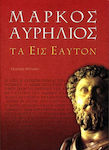 Top rated
Top rated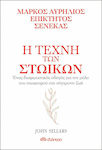 Top rated
Top rated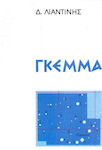 Top rated
Top rated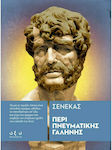
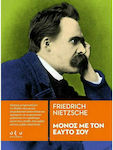
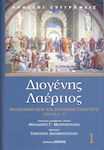
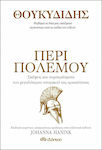
Philosophy Books
Περί Πολέμου - Σκέψεις και Συμπεράσματα του Μεγαλύτερου Ιστορικού της Αρχαιότητας
Ad from BooklibertyAdded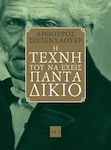
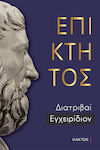


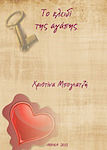
All shops
Prices are calculated for:Luxembourg, Other Payment Options
- 15,30 €
- 15,30 €
- 15,13 €
Specifications
- Subtitle
- The Third Form of Ontological Integration
- Format
- Soft Cover
- Number of Pages
- 215
- Publication Date
- 2021
- Dimensions
- 17x24 cm
Important information
Specifications are collected from official manufacturer websites. Please verify the specifications before proceeding with your final purchase. If you notice any problem you can report it here.
Reviews
THE TRUE PATH OF BEING
Book review by Dr. Philosophy Dimitris GeorgopoulosWe will write a few lines about Mr. Rini's book with the above title as the central theme. In a general sense, it is characterized formally by an essayistic discourse and content-wise by an experiential composition of existence, as the author himself has known it theoretically through the texts of great thinkers of philosophy in its historicity and practically through the vibrations of his own human experience. The author's expectations permeate every chapter of the book, like light falling on a not-so-smooth surface, and are collected into meanings that attempt to capture the intricate character of common reality. More specifically, the author primarily wonders where the path of being lies throughout the dark day of existence. He sees this darkness being confronted in the everyday life surrounding him with an artificial light, which can become true, innate light when a person learns to think. When does one begin to learn to think? From the moment the mind reaches such heights that it discovers the calm focal point of Being behind the "war" of phenomena.
How does the author understand being? He rather presupposes it as something divinely or mentally existent, by virtue of which a person, as they discover it, feels closer to the source with pure water and leaves behind the "wastewater" of dichotomous everyday life. Of course, he could explicitly define the concept of being right from the start and then present its most characteristic unfoldings, in order to better highlight the "crucifixion" of human existence with the hope of "resurrection." In any case, it seems that the author moves along the line of searching for being through the experience of non-being:
"The approach to the 'truly being,' the 'being' in search of the 'truly being' is done in reverse, starting from the immediate experience of 'non-being' in the sense of 'non-life,' 'non-existence' as 'being'" (p. 28).
The concept of "non-being" is one of the most difficult and constantly under investigation in the history of philosophy. Its use and a corresponding interpretation can never be definitive. In the present book, the author identifies "non-being" in the "fall" or decay, one could say, of being, in the context of the genesis and decay of beings. In an indirect sense, he sees a "cycle" between being and non-being, a wandering of being, dictated by its driving force, the mind. The question that arises here is this: are the mind and being two different things or a single perpetual motion? What is visible in the work under discussion is that the author uses various constructs of the mind, such as "chaotic mind," "artificial mind," or "imagination of the mind," "spirit of the mind," "soul of the mind."
Another question that arises in connection with the above relates to how the soul is defined. The author speaks of "the spirit of the soul," formulating a series of his own observations or delineations, each of which requires special analysis. There is also a triptych of concepts: "mind-spirit-soul," to each of which he attributes a dynamism or mobility and seeks some interaction among them. It is noteworthy that these concepts in the long history of philosophy are sometimes used as synonymous or identical or even as overlapping or subordinate. Continuing to observe or read the course of the being through its transformation into a non-being, it engages with the concept of the subject and the person on a primarily emotional role basis and speaks of the "Word of the heart" or the "cardiac Word." These last phrases or expressions are created by the author, without responding to any classical text of philosophy, in order to give priority or the primary role to emotion. This is also evidenced by the language the author uses in his overall work.Translated from Greek ·- Paper quality
- Was it easy to read?
- Was it interesting enough?
- I liked the writing style
- I would read a book by the same author
- I would recommend it for reading
Did you find this review helpful?This written work is a philosophical attempt to understand being and its true path to reaching truth, offering an interesting way of perceiving things. Philosophical theories from ancient times to the modern era become the carriers, formations, and representations of the journey of being towards its purpose, the conquest of substantial truth, with reason as a significant tool of thought. According to the author, this substantial truth is nothing more than the absolute interiority of experience. In an era where numerous distractions prevent individuals from processing their experiences, the author's philosophical approach systematically leads the reader to reflect on their own practices and reach a different perspective of their world. It is a pleasant read that, with its imaginative language, questions, and interpretive analyses referencing the modern era, holds the reader's interest and becomes accessible and familiar to everyone.
Translated from Greek ·- Paper quality
- Was it easy to read?
- Was it interesting enough?
- I liked the writing style
- I would read a book by the same author
- I would recommend it for reading
Did you find this review helpful?REVIEW OF DIMITRIOS K. RINIS' BOOK "THE TRUE PATH OF BEING"
Existence and truth as the goal, that's what we're looking for. And the author, with respect and awareness of the history of philosophy throughout the centuries, from ancient Greek literature to the present day, seeks the true path of being and highlights the way, providing his own philosophical justification. An internal journey, a discovery of truth. With all due respect, if I were to compare the book to a theatrical scene and prose, here the protagonist is not the unknown and incomprehensible, but rather the human being and his quest for the discovery of his "truth."
Translated from Greek ·- Paper quality
- Was it easy to read?
- Was it interesting enough?
- I liked the writing style
- I would read a book by the same author
- I would recommend it for reading
Did you find this review helpful?A philosophical work that combines philosophical theories from pre-Socratic to contemporary philosophers with the aim of highlighting the true source of human "Being". In terms of language and style, it is true "poetry"!
Translated from Greek ·- Paper quality
- Was it easy to read?
- Was it interesting enough?
- I liked the writing style
- I would read a book by the same author
- I would recommend it for reading
Did you find this review helpful?- Paper quality
- Was it easy to read?
- Was it interesting enough?
- I liked the writing style
- I would read a book by the same author
- I would recommend it for reading












